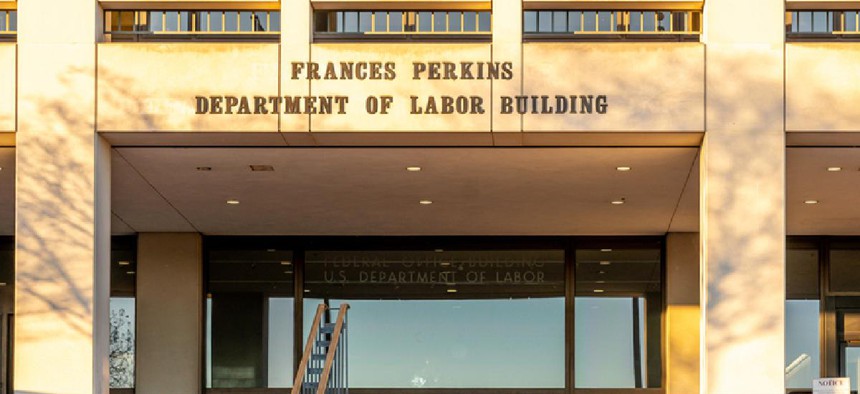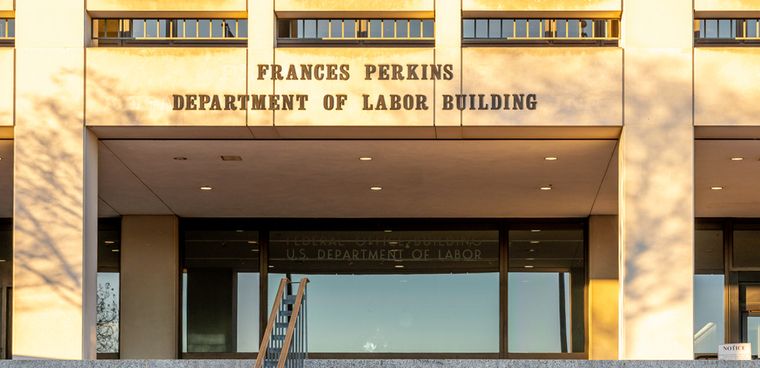Key questions remain for contractors about diversity training regulations

Although a Department of Labor official says diversity training is still possible for federal contractors under the new policies, confusion over the guidelines has already resulted in cancelled training as agencies and contractors hit pause rather than risk violating a Trump administration executive order.

The Department of Labor official in charge of policing federal contracts said that an executive order cracking down on "divisive concepts" in diversity training for federal employees and contractors does not necessarily mean that diversity and inclusion training has to stop.
"Basically every federal contractor does unconscious bias training," said Craig Leen, the Director of the Office of Federal Contract Compliance Programs (OFCCP), during a panel on diversity and inclusion in the federal workforce hosted by Government Executive on Tuesday.
The new guidelines carve out caveats into what is allowed by prohibiting training that focuses in on certain races or sexes, Leen said, citing the topics of "white fragility" and "white privilege" as examples of what is no longer allowed to be discussed.
However, "general" training on unconscious bias is allowed, he said, along with "diversity and inclusion training generally."
"We believe that diversity and inclusion can still be done – and done vigorously – under the executive order," Leen said. "Diversity and inclusion efforts are encouraged."
Key questions linger for affected companies.
One issue is confusion over how to implement new standards, which business groups have characterized as ambiguous. An Oct. 15 letter signed headed by the U.S. Chamber of Commerce and signed by a nationwide coalition of trade associations and business groups opposed to the executive order cited uncertainties in the new regulations as roadblocks to continuing diversity and inclusion work.
"We believe the E.O. will create confusion and uncertainty, lead to non-meritorious investigations, and hinder the ability of employers to implement critical programs to promote diversity and combat discrimination in the workplace," the letter reads.
The concepts prohibited in the executive order, are open to interpretation, the letter states. Moreover, what the new policies mean for multi-national companies who are also U.S. federal contractors is unclear.
Signatories point to the hotline created by the OFCCP for contract employees to report policy violations under the new executive order. It does not distinguish between the training curriculum in question and the reports of participants themselves.
The guidelines set under the executive order apply to federal contractors, subcontractors and their own employees beginning Nov. 21. The new policies on diversity and inclusion training come with the threat of a cancelled, terminated or suspended contract, as well as being rendered ineligible for future contracts. Legal challenges to the new policy are anticipated.
This threat hovers while everyone, including companies that program and deliver diversity and inclusion training, tries to make sense of the new regulations.
Many federal agencies have elected to freeze diversity and inclusion training while waiting for guidance, and some leading federal contractors have followed suit, according to a diversity and inclusion consultant who agreed to speak with FCW on background. Other clients are waiting to make decisions about how to move forward until after the conclusion of the November presidential election, they said.
This downturn for diversity and inclusion consulting comes after a wave of momentum following the aftermath of the killing of George Floyd, the diversity and equity consultant said.
Because of the potential threat of debarment for breaking the new rules, many contractors are wary of pushing back against the regulations, they said.
"Let's be honest, if 95% or 100% of your business comes from the government, are you, the CEO, going to put that at risk," the consultant explained.
Stephen Jackson, the Diversity and Inclusion Implementation Executive at the National Geospatial-Intelligence Agency, also spoke on the Government Executive panel with Leen, where he emphasized the importance of individuals being aware of their own potential biases, given how biases could affect how a person analyzes, makes decisions, or perceives the nature of a problem.
"The idea of trying to totally avoid the topic of unconscious bias is anathema," he said. "We can't do our job without that conversation."
Jackson said that the National Geospatial-Intelligence Agency will follow the Department of Defense's policies. So far, the DOD has requested that combat support agencies submit summaries and curricula of their diversity and inclusion training, he said, which has resulted in "hiatus in some of our training."
The public comment period for the new policies begins this Thursday, Oct. 22.
NEXT STORY: NITAAC CIO-SP4 on track



